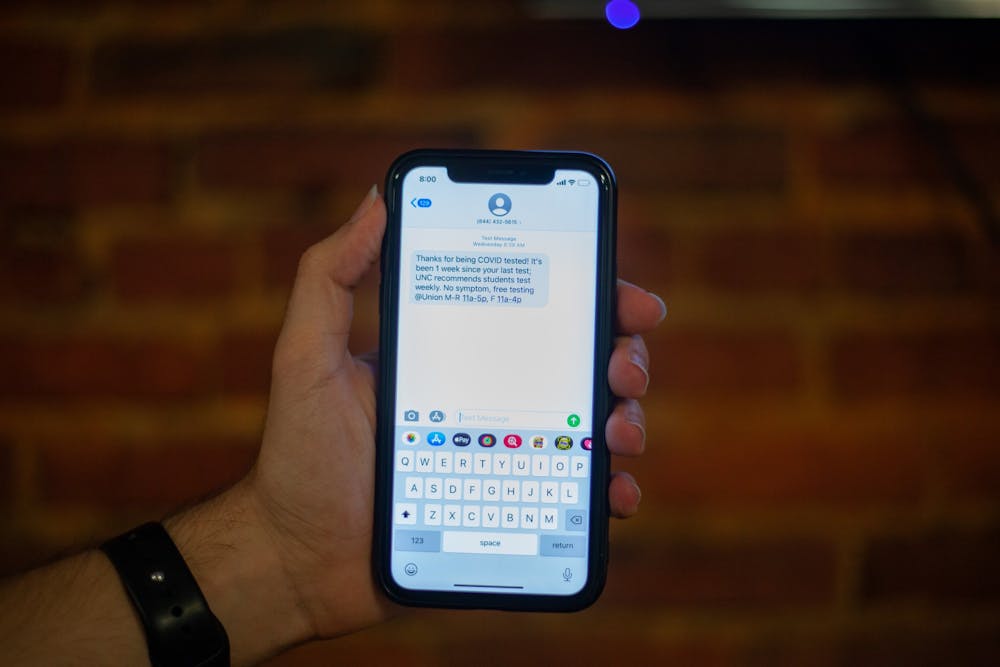One week after UNC sophomore Mary McKay got a COVID-19 test at the Student Union, she received a text from Campus Health stating that it was time for her to get another test.
These texts are part of a new testing program by the University that recommends students get tested for COVID-19 every five to nine days.
“The continual testing reminders are intended to reinforce to students that a negative test result means that they are negative for the day tested, but this is not an assurance of continued immunity from the disease,” Ken Pittman, executive director of Campus Health, said in a statement.
Pittman said Campus Health chose text reminders based on student input that referenced texting as the easiest way to communicate.
Students like Ally Pagans, a senior nursing major who got tested this week, said the texts serve as a reminder of both the importance of testing and the ease of new testing procedures.
“I think it's definitely an effective way to keep it on the forefront of students’ heads and remind them, because obviously we just get so overwhelmed with a lot of different responsibilities,” Pagans said. “If I have the opportunity to get tested, I want to get tested.”
Students are automatically opted in to receive texts from Campus Health via ConnectCarolina, Pittman said. They should receive the reminder messages starting a week after their testing unless they have opted out, have an incorrect number listed or do not have a number listed, he said.
UNC student Brooke Spalding said the texts do not hurt as a reminder to continue getting tested. She said her house of nine girls decided to get tested every week to be safe because of the ease of new procedures at the Union.
“Saliva testing makes it less intimidating,” Spalding said. “The fact that it’s free definitely makes it accessible, the fact that they are dedicating parking spots, the fact that it takes literally like five minutes – I think all of that makes it more accessible.”



